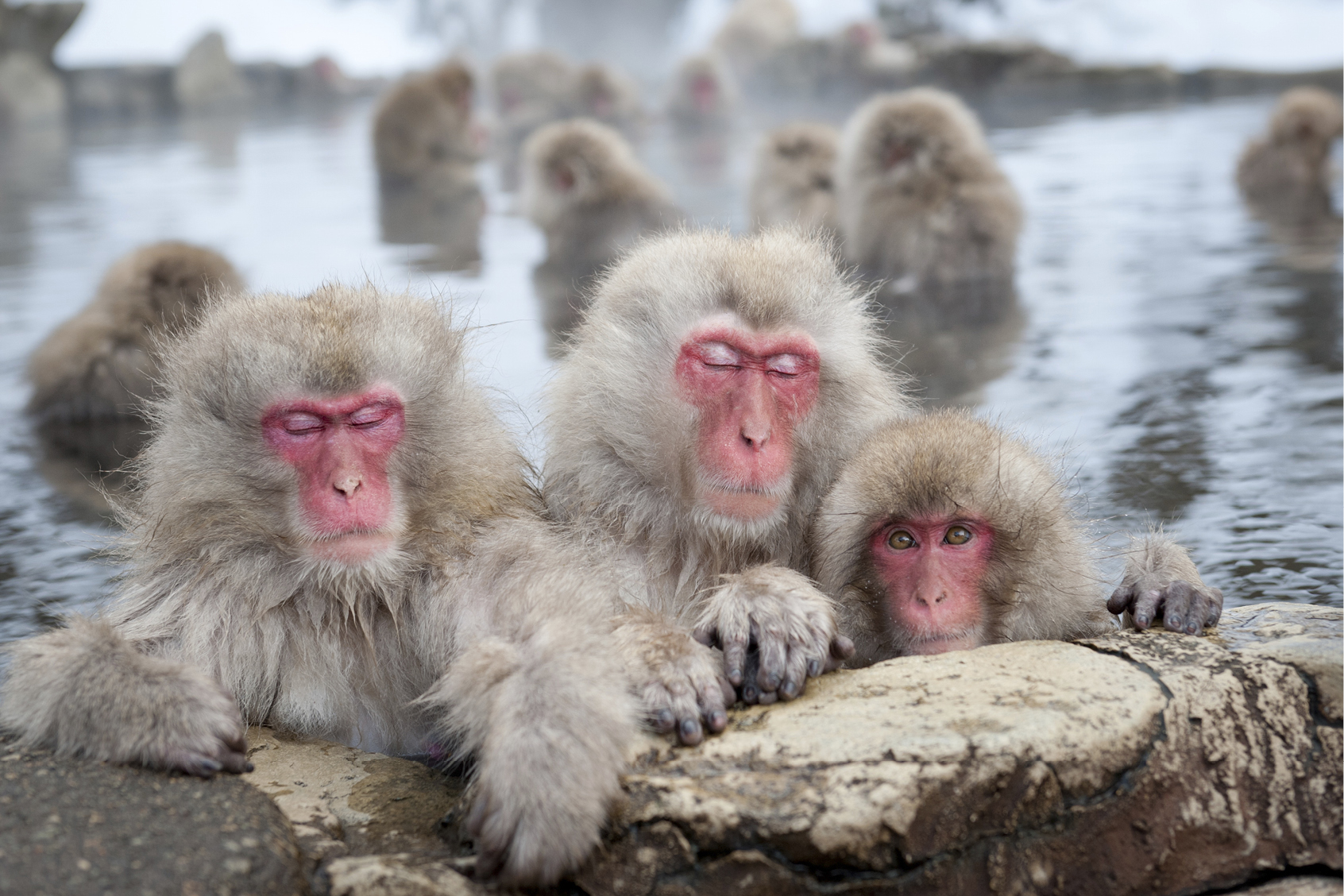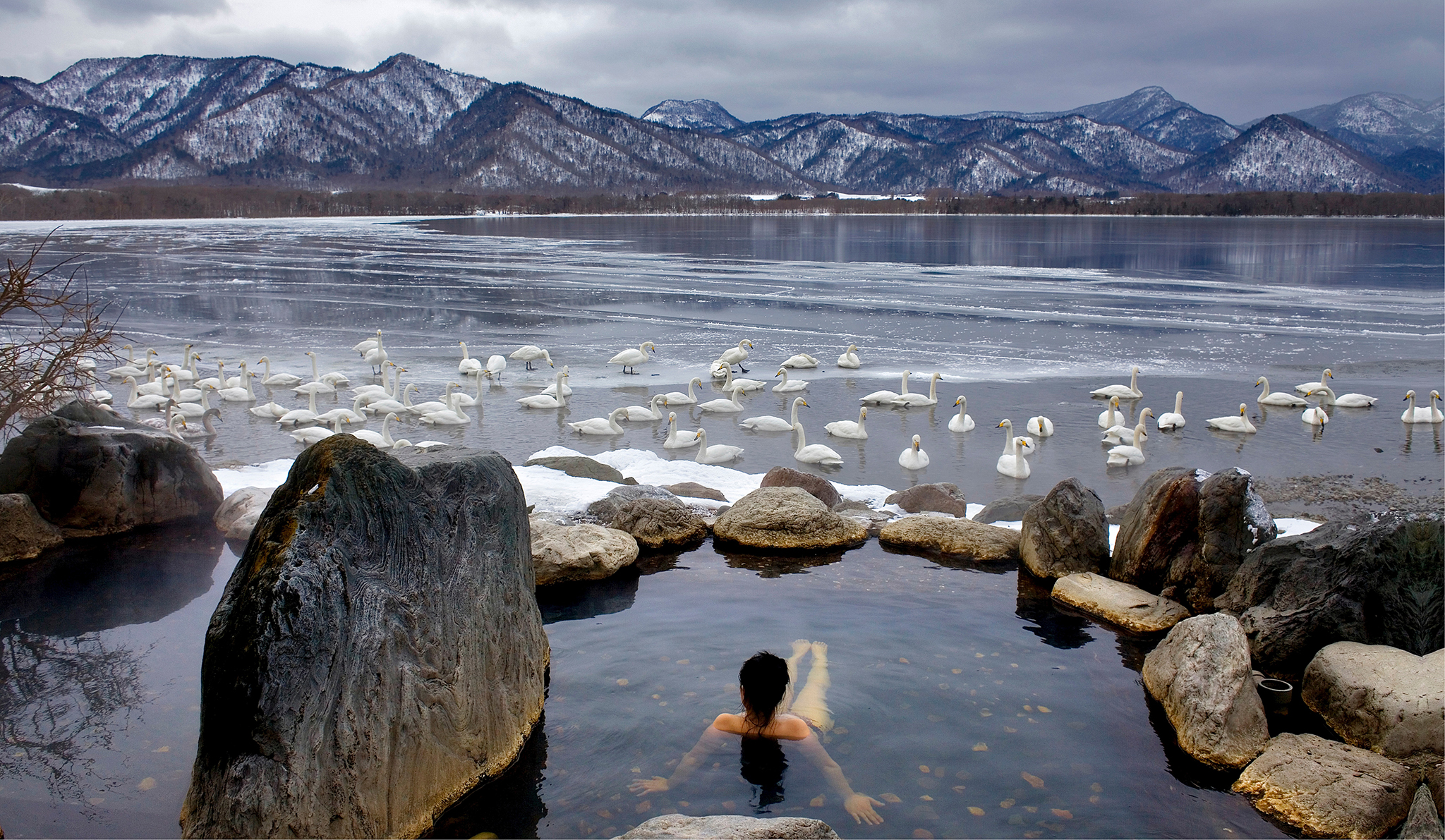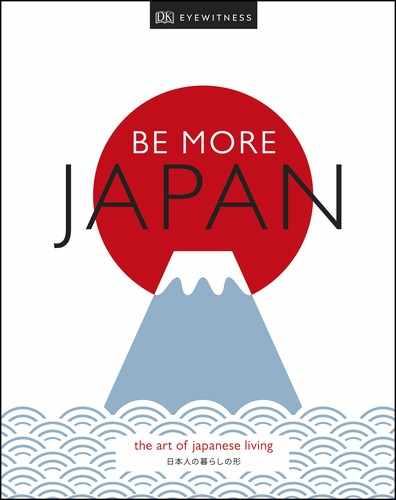温泉
Hot Springs
An essential Japanese experience
With over 100 active volcanoes and more than 27,000 thermal springs, Japan has developed a unique culture around bathing that centers on the country’s much-loved hot springs, known as onsen. The fondness for these warm, natural pools has turned what would otherwise be just an ordinary bathing routine into a cultural and social experience, and the Japanese soak in onsen to heal aches and pains, escape the rigors of daily life, and socialize with friends and family. The Japanese are such onsen fans that dedicated onsen resort towns have been developed, where guests can wander around in their yukatas (cotton kimonos) and dine on local cuisine between baths. There are even onsen just for pets—and wild animals also get in on the act, with Japanese macaques blissfully soaking away in Jigokudani Snow Monkey Park (Nagano Prefecture).

D In the north of Japan, the macaques live in the coldest climate of all wild primates.
Types of Baths
There are several types of baths to choose from in every resort town. A sento is simply a public bath with artificially heated tap water, while the authentic onsen use natural springs. A thermal bath that is located outdoors is called a rotenburo and is loved by Japanese as a way to connect with nature, sometimes offering unparalleled views of the countryside or a peaceful garden.

D There’s nothing more peaceful than sitting in a warm rotenburo surrounded by snow.
Rotenburo
Many rotenburo provide spectacular views you couldn’t access any other way. Visiting in winter makes a particularly beautiful experience.
Natural remedies
Although any onsen can stimulate blood circulation and metabolism, most also contain minerals considered beneficial as treatment for arthritis, diabetes, neuralgia, and other ailments. There’s even a word—toji (balneotherapy)— for the treatment of health problems by bathing in mineral springs.
A key bonus of onsen comes from the water’s sodium chloride, which encourages perspiration, thereby ridding the body of waste. This helps produce the feeling of silky-smooth skin much prized by Japanese women, as well as being good for skin ailments such as eczema, abrasions, burns, and dermatitis.
On a trip to a resort town, the Japanese may make several trips between soaking in the natural baths and cleaning themselves at the taps, but they usually end with one last dip in the onsen to take full advantage of the water’s medicinal qualities.
